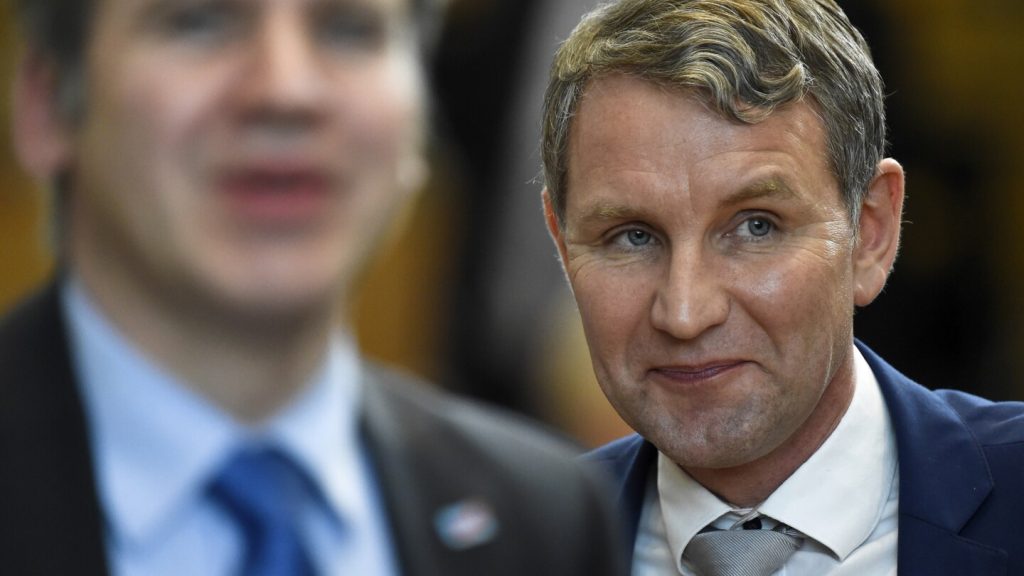The prominent far-right figure in Germany’s Alternative for Germany party, Björn Höcke, has been charged with a second count of uttering a slogan used by the Nazis’ SA stormtroopers at a political event. This comes in addition to the existing charges he is facing for using symbols of unconstitutional organizations. Prosecutors allege that Höcke used the phrase “Everything for Germany!” at two separate events, demonstrating his awareness of the slogan’s origins. Despite his lawyers denying any criminal relevance to his words, the new charges will be added to the upcoming trial scheduled for April 18 in Halle. Höcke is a key figure in the AfD and is set to lead the party’s campaign in an upcoming state election.
The AfD’s branch in Thuringia, led by Höcke, has a reputation for radicalism and has been labeled a “proven right-wing extremist” group by Germany’s domestic intelligence agency. Höcke’s controversial statements in the past, including calling the Holocaust memorial in Berlin a “monument of shame,” have sparked outrage and calls for his expulsion from the party. Despite these incidents, he has maintained his position and influence within the AfD. National polls have shown the AfD to be in second place behind the mainstream conservative opposition, with the party showing particular strength in the formerly communist east of Germany.
The latest charges against Höcke come amid ongoing scrutiny of far-right extremism in German politics. The AfD has faced criticism for its ties to extremist ideologies and its role in promoting nationalist and anti-immigrant sentiments. The party’s rise in popularity has raised concerns about the potential impact of far-right ideologies on German society. As the country grapples with issues of extremism and nationalism, the charges against Höcke highlight the challenges faced in addressing and combatting radicalism within the political sphere.
Höcke’s repeated use of slogans associated with Nazi ideology raises questions about the boundaries of free speech and the legal limitations on promoting extremist views. The prosecution’s decision to pursue charges against him for his rhetoric reflects a broader effort to hold individuals accountable for espousing dangerous and inflammatory ideologies. The case against Höcke will test the legal system’s ability to address extremist speech and actions within the context of Germany’s history and commitment to combating hatred and discrimination.
As the trial approaches, the spotlight will be on Höcke and the AfD’s handling of his controversial statements. The outcome of the legal proceedings will have implications for the party’s future and its standing within German politics. The charges against Höcke serve as a reminder of the ongoing challenges in confronting extremism and upholding democratic values in a society that continues to reckon with its history of intolerance and discrimination. Whether the AfD will distance itself from Höcke or continue to defend him remains to be seen, but the case will undoubtedly have a lasting impact on the party’s reputation and influence in German political life.


